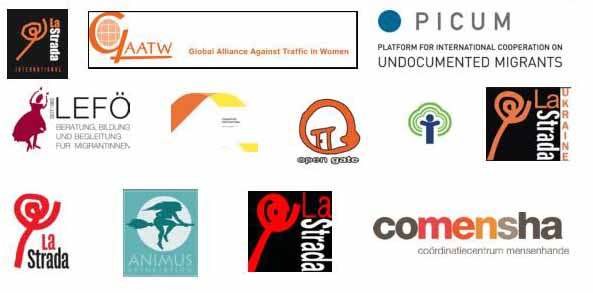STATEMENT 17 DECEMBER: INTERNATIONAL DAY TO END VIOLENCE AGAINST SEX WORKERS

Today, on 17 December, the LSI NGO Platform - United against human trafficking in Europe[1] calls to end violence against sex workers and for the protection and promotion of their human rights.
Globally, sex workers face many forms of violence. Due to the often criminalised status of sex work and the stigma that sex workers face, violence against sex workers remains nearly always unpunished. We believe that violence against sex workers needs to be addressed by protecting their rights and investigating and prosecuting all violent offences against anyone working in the sex sector.
However, this approach to end violence against sex workers is hard to put into practice if sex work itself is considered as violence against women. Equating sex work with violence against women leads to criminalising the industry, clients and sometimes even sex workers themselves. As a consequence, sex workers are not recognised as rights holders and are deprived of the tools to protect themselves from violence and seek redress. Criminalisation deprives them of their income without offering an alternative and it stigmatises and marginalises both domestic and migrant sex workers. It drives the sex industry even more underground, which results in less access to health, social and legal assistance for sex workers, and significantly lower chances to identify individuals who have been trafficked.
The call for criminalisation of clients of sex workers is also made in the name of preventing and combatting trafficking in persons. The members and partners of La Strada International, unified in the LSI NGO Platform – United against human trafficking in Europe, have supported many women and men who were trafficked in the sex industry in the past nearly two decades. We know from experience that criminalisation does not solve any of the problems that our clients face, nor does it prevent or stop human trafficking.
We do recognise that the sex industry is one of the economic sectors in which human trafficking occurs, as it does in other sectors, in particular those where workers are invisible, unprotected, excluded and disempowered. Therefore, we believe that sex workers rights organisations, just as trade unions, are important allies in the efforts to protect workers from exploitation, violence and abuse and to prevent trafficking in human beings.
By equating sex work to trafficking in persons, the very complex phenomenon of human trafficking is narrowed down to a moral issue, an approach that fails to address the economic, political and social root causes of trafficking. Furthermore, trafficked persons in all other industries are not recognised and remain unprotected.
The conflation of sex work and trafficking in persons leads to inadequate counter-trafficking policies and to counter-productive prostitution policies. The two issues are both complex and need their own individual approach and policy. As UN Women declared in their ‘Note on sex work, sexual
exploitation and trafficking (9 October 2013): “... the conflating of consensual sex work and trafficking in human beings, leads to inappropriate responses that fail to assist sex workers and trafficked women in realising their rights. Furthermore, failing to distinguish between these groups infringes on sex workers’ right to health and self- determination and can impede efforts to prevent and prosecute trafficking.”
Since the adoption of the Palermo Protocol in 2000, the focus in the international anti-trafficking debate has widened to exploitation, violence and abuse in all industries and economic sectors. Unfortunately, the conflation of trafficking in human beings and prostitution has lately re-emerged
in several European countries and also in the European debate on combating trafficking in human beings. LSI NGO Platform is worried about these developments as we believe that they do not contribute to the protection of sex workers from violence and abuse, nor do they address the root causes of trafficking in human beings. We are also worried that this focus on sex work leads to a polarisation in the international counter-trafficking debate, which takes away the focus from what is needed now the most: the protection of the rights of those who have been exploited, violated and abused.
- La Strada International
- Global Alliance Against Traffic in Women (GAATW), International Secretariat
- Platform for International Cooperation on Undocumented Migrants (PICUM)
- LEFÖ, Austria
- The Human Resource Development Foundation (HRDF), Turkey
- Gender Perspectives, Belarus
- Animus Association, Bulgaria
- La Strada Czech Republic
- Open Gate, Macedonia
- La Strada Moldova
- Comensha, the Netherlands
- La Strada Poland
- La Strada Ukraine
[1] The LSI NGO Platform - United against trafficking in Europe aims to strengthen the cooperation in Europe (EU and Non-EU)among civil society organisations combining practical work with trafficked persons and affected groups with political advocacy for human rights based policies to eradicate trafficking in human beings

